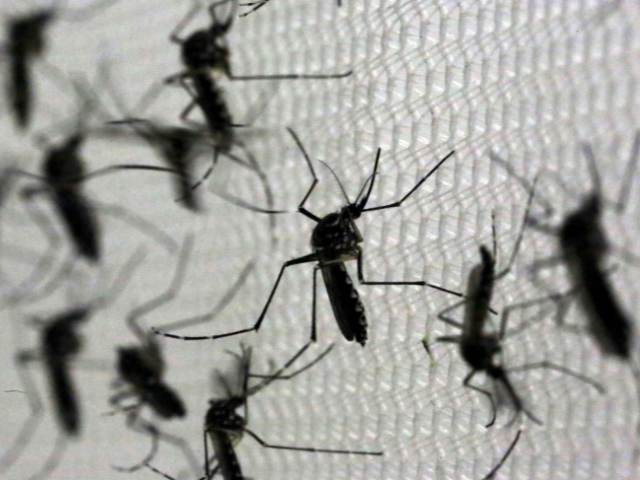
A village in the densely populated capital region of the Philippines has launched an innovative strategy to combat dengue by offering residents a small reward for each mosquito or mosquito larvae they capture.
The Addition Hills village, located in Mandaluyong City, has introduced the bounty system after dengue cases spiked in nearby Quezon City, which declared an outbreak over the weekend.
The bounty of one Philippine peso (just over 1 cent) per five mosquitoes or larvae reflects growing concern as dengue cases continue to rise.
Up to February 1, the Philippines has reported 28,234 cases of dengue, a 40% increase compared to the same period last year, according to the Department of Health. Quezon City has seen a particularly troubling rise, with 1,769 cases and 10 deaths, mostly children.
The initiative was launched after 42 dengue cases were recorded in Addition Hills this year, including the deaths of two young students.
"There was an alarm," said village leader Carlito Cernal, who decided to intensify the village’s efforts by introducing the mosquito bounty system.
While some critics worry the campaign might backfire, with people potentially breeding mosquitoes for rewards, Cernal dismissed those concerns, explaining that the programme would end once the number of cases declines.
The initiative has already attracted attention, with several residents participating. One local, 64-year-old Miguel Labag, turned in 45 mosquito larvae and received nine pesos (15 cents) in reward.
"This is a big help," Labag said, smiling. "I can buy coffee."
Dengue is a mosquito-borne illness that causes joint pain, nausea, vomiting, and rashes. In severe cases, it can lead to breathing problems, bleeding, and organ failure. While there is no specific treatment for dengue, maintaining proper fluid levels is crucial for recovery.
Health Secretary Teodoro Herbosa emphasised the importance of eliminating mosquito breeding sites, urging anyone who suspects they have been infected to seek medical help immediately.
Despite the rise in cases, the Philippines has managed to keep the mortality rate low.
In an effort to curb mosquito populations, another village in Quezon City is considering releasing frogs to consume the insects.
Experts note that off-season rainfall and climate change have contributed to stagnant water, providing ideal breeding grounds for mosquitoes.



























COMMENTS
Comments are moderated and generally will be posted if they are on-topic and not abusive.
For more information, please see our Comments FAQ